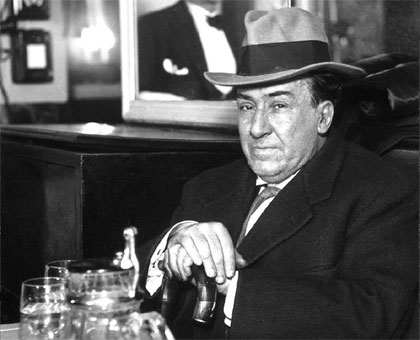More than a fraction of the whole
Some strains of regionalism represent the soul-searching of those who, patriotic but critical, look for grounds for the nation to rebuild. Imagining the regional landscape, they find a means to discuss problems, but also to find what is virtuous about the people and their labors.Antonio Machado wrote Landscapes of Castile (Campos De Castilla) in the years following the Spanish-American War in 1898. It is a souvenir of his search for the nation’s hope and future. After Spain’s rapid defeat and the dispossession of its colonies, many writers looked inwardly at the conditions within the country and its sluggishness of progress since the sixteenth century.

Now there is a Spaniard who wants
to live and is beginning to live
between the Spain that is dying
and another Spain that is yawning.
The vernacular landscape of Castile has, of course, its castles, collapsing among the stony mountains, but it is also dominated by either subtle variation or monotony of unremarkable features. The Duero River runs through the groves of poplars, olives and oaks. If that changes, it is because the lazy profiteers deforest the landscape of its lush trees.
The man of this country who torches pine forestsThe environmental decay corresponds to urban flight. The peasants find no profit in agriculture unless they send their sons and daughters to the cities.
and waits for his plunder as spoils of war ...
Today he sees his poor sons flee their homes,
storms carry away the soil of the earth ...
On his own, the “provincial man of the casino” gambles away his legacy. He waits for revolution or change of government to improve his life but has no clue how to affect change on his own.
This man is not part of yesterday or tomorrow,The common man, however, is hard working, but unimaginative. The modern world has left the rural untouched, and the country as a whole has taken little interest in developing its people, only waiting for the riches to come from overseas. Consequently, the people are unaware of new ideas and opportunities. They know only the routine that they can break only by leaving.
but timeless; of Hispanic stock,
he is neither the mature fruit nor the rotten,
but the vain fruit
of that Spain gone by that never was,
that today has a head turning away.
Does anyone hear the pulse of time
in these towns? No.
In these towns people battle
relentlessly with the clock,
with the monotony
that measures time as emptiness.
Ultimately, Machado’s Castile is much like Spain’s people: neglected, underdeveloped, uprooted and backward. His literary regionalism allows him focus on problems lost at the national perspective, which looks to the decline of empire rather than the degeneration of the nation.





0 Comments:
Post a Comment
<< Home